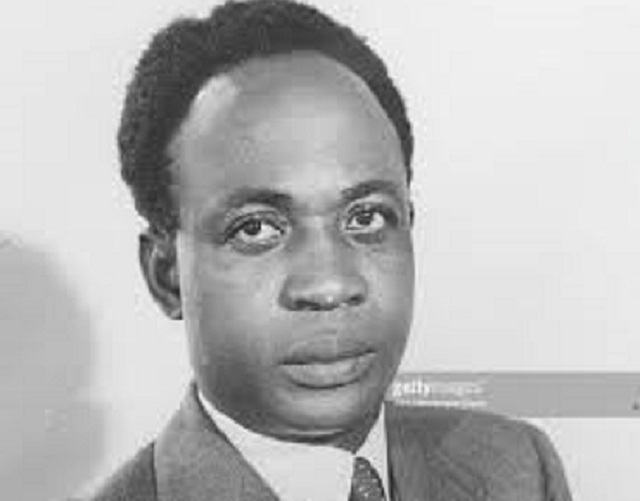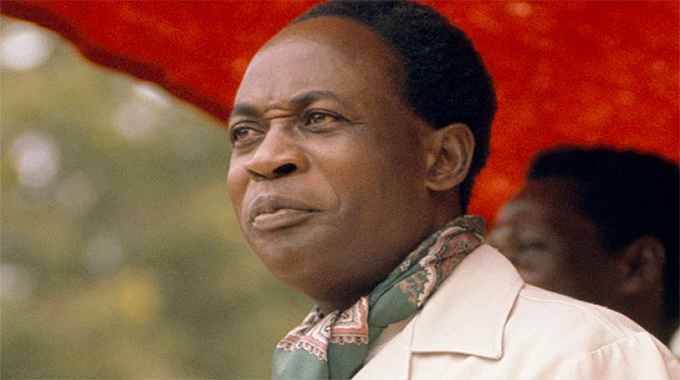
The Sunday News

I believe it to be true that we must all try at some point to be gods in what we believe and what we do. In so trying we will never really become true gods but in the effort of trying we will do better than ourselves and others in what we have chosen to do. In other words, the true meaning of effort is in bringing our ideas that are otherwise fantasies and dreams into materiality. Practical effort is in the movement from idealism to materialism, from mind to matter, that is. I thought as such and about this in a conference where the younger and the angry in the gathering dismissed the philosophy and practice of Pan-Africanism as an African dream that never came true and might never come true.
These young and angry souls were looking at an idea of the 1900s with eyes and minds of 2022, understandably. When new eyes look at an old idea something may be lost in the distance of time. To them it is an obvious truism that Pan-Africanism never was and will never be. Pan-Africanism came to trial for its truth, its life, and its future in the hands of a young and angry political and intellectual generation that is impatient with even listening to stories of liberation struggles and revolutions in Africa. My contribution to the heated debate was Fanonian in texture. The challenge of our political and intellectual generation is to discover the failures of Pan-Africanism and correct them or resign to being another treacherous and failed African generation. We must work to be the new gods of Pan-Africanism that will give the philosophy its new life and new truth in the present world disorder.
A meeting of many minds in Pretoria
The Mapungubwe Institute for Strategic Reflection (MISTRA) hosted a conference on Developing a Pan-African Agenda Dealing with Global Issues. The Council for Scientific and Industrial Research (CSIR) hosted the conference on 28 September in its massive International Convention Centre (ICC). When many minds meet their thoughts and feelings cannot be unaffected by the local and the global political and intellectual climate. The Covid-19 global pandemic that banished in-person conferences and the war in Ukraine that has brought fresh questions about the place of Africa in the world were in the air above this conference whose deliberations ranged from the tragic, the sad, the angry, the fearful and the sombre.
Thinking and deliberation cannot afford to be insulated from the orders and disorders of the world in which they are taking place, I guess. At some point, witnessing the rather high-voltage deliberations and volcanic engagements I thought to myself that Covid-19 had kept academics and activists away from each other for too long hence the coming together once again is bound to be of high tempo.
Pan-Africanism: A philosophy or an ideology?
The charge-sheet against Pan-Africanism was long with a litany of allegations and some indisputable accusations. Understandably, Kwame Nkrumah became a person of interest, and his political failures were used to illustrate the failure of Pan-Africanism. That Nkrumah declared a one-party state in Ghana and had himself “crowned a life president” of the Republic was one capital charge. His hand was so allegedly heavy on political opponents that at some point he had more political prisoners in his jail than apartheid South Africa.
Those who opposed the idea of a United States of Africa that Nkrumah proposed often cited his authoritarianism as a reason for their opposition to the idea. They saw in Nkrumah a totalitarian and authoritarian that wanted to be the life president of Africa by any means necessary.

Kwame Nkrumah
As the African strongman that he became, Nkrumah attracted choirs of praise singers that called him the “Wise Guide,’ the ‘National Guide’ and the ‘Show Boy’ amongst other sweet titles. Troops of enterprising flatterers surrounded him dispensing doses of flattery, and the sycophants hung around fawning at the first black African president. Combined, the praise singers, flatterers and sycophants removed Nkrumah from the real world and transported him to another universe where he was a deity and allowed no opposition to his word that had become an oracle. As such, Nkrumah never saw the move that removed him coming until it hit him like the proverbial tonne of bricks.
The very embodiment of Pan-Africanism was caught up in tyranny on the one hand and was attacked by agents of imperialism and neo-colonialism on the other, his career came to an end and Pan-Africanism buried with it. After Nkrumah it was only to be Colonel Muammar Qaddafi, much later, to call for a United States of Africa. And Qaddafi did so after he was ejected from the Arab League of countries that reminded him that Libya was in Africa and not exactly an Arab country.
The feminists in the conference raised their own allegations about how there were few or no women in Nkrumah’s cabinet of ministers which meant that, after all, Pan-Africanism was patriarchal, sexist and misogynist. It was said that Nkrumah never valued women in Ghana to the extent that when time to marry came he went for the daughter of Gamal Nassar, an Egyptian Arab. The closest women of Ghana came to power was dancing for Nkrumah at the airport and the elegant First Lady who accompanied him, always.
Pan-Africanism was for the founding fathers of Africa and there were no founding mothers. The youths sprang up with their allegations that Pan-Africanism as personified by Nkrumah was ageist. Youths were always told that they were leaders of tomorrow, their political participation post-poned to the afterlife of the life president. The feminists in alliance with the youths concurred that the young and the female, in Pan-Africanist Africa, were always needed as party members, party supporters and voters and not stakeholders in power.
Because Pan-Africanism was pioneered by European educated African blacks such as Nkrumah and others before him, the allegation was always going to come that it was an elitist ideology of African intellectuals and politicians that were not in touch with the African grassroots. As such, Pan-Africanism remained an incantation and a slogan isolated to political rallies and university corridors.
It was never, allegedly, bought and practiced by ordinary African water drinkers and bread eaters. In that way, Pan-Africanism never became a philosophy of liberation in Africa but remained a sterile political and intellectual ideology that did not have the interest of ordinary Africans at its heart. It became clear to me that Pan-Africanism might have failed in the past and that Pan-Africanists such as Nkrumah might also have had their share of failures, but it does not mean that Pan-Africanism itself is a lost cause.
Recovering the lost causes
Pan-Africanism was born a philosophy for and against something. It was against colonialism and disunity in Africa and for African unity and liberation. On the way it was reduced from a philosophy of liberation to an elitists political and intellectual ideology whose fulfilment was in slogans and the dress of intellectuals and politicians.
Pan-Africanism was not allowed to mature into an African political culture and a daily way of life and that is why we still witness xenophobia, Afrophobia, and toxic nationalism, tribalism and clannism in African countries.
The decolonisation of Pan-Africanism that I previously wrote of means, in part, recovering Pan-Africanism from its failures and losses in Africa. African unity, a decolonial borderless Africa, will liberate Africans in the world in that Africa as one country will gain indefatigable bargaining power in world economic, political, intellectual and military fora.
As things stand now, small African countries navigating the world system as disparate and divided, often conflicting units, makes Africa a farce and a failure in world affairs. A United States of Africa looks impossible now because we are not thinking and working like gods, we are not even trying. In the New World Disorder, only a united, solid, one Africa, will prosper and prevail against all adversity.
Cetshwayo Zindabazezwe Mabhena writes from Gezina, Pretoria, in South Africa. Contacts: [email protected]



